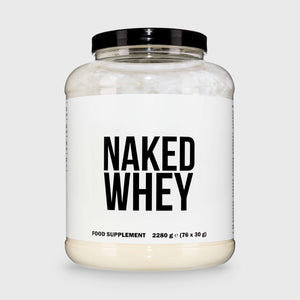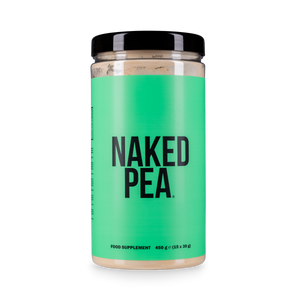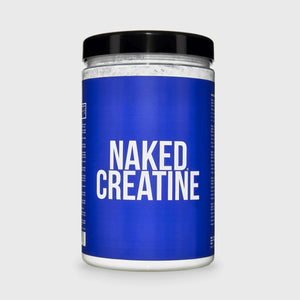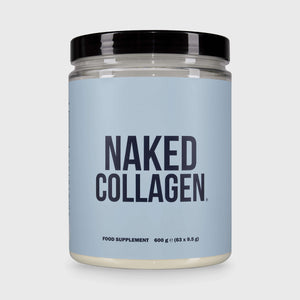
Why Zinc Absorption Matters
Zinc is a micronutrient that supports nearly every body system. It plays a crucial role in immune function, hormone regulation, wound healing, and maintaining healthy skin, hair, and nails. Zinc contributes to us having a sense of taste and smell, DNA synthesis, and cell growth—making it especially important during periods of rapid development such as childhood, adolescence, and pregnancy.
Despite zinc being a crucial nutrient, the body is inefficient at storing it. Unlike fat-soluble vitamins that can be stored in the liver or tissues, zinc must be consumed regularly through food or supplements to maintain adequate levels. However, consuming zinc regularly through diet and supplements may not guarantee sufficient levels. What really matters is how much zinc your body can effectively absorb and utilize, or how bioavailable the zinc is.
Nutrient bioavailability refers to the amount of a nutrient that actually reaches your bloodstream and becomes available for the body to use. There are many factors that impede this process – certain dietary compounds, medications, or gut health issues can reduce absorption. If you’re not absorbing and utilizing zinc well, you can be left deficient even if you’re eating zinc-rich foods and taking consistent supplements.
Understanding what impairs absorption is essential to optimize health. Vegetarians and vegans, or anyone supplementing with zinc for immunity or skin health should pay extra attention to how they’re absorbing zinc. Addressing potential barriers can make the difference between taking zinc and actually reaping the benefits of it.
Where and How Zinc Is Absorbed in the Body

Zinc is primarily absorbed in the small intestine, specifically the jejunum and ileum which are the second two sections of this organ. Once zinc enters the small intestine, it is absorbed through the intestinal lining and binds to special transport proteins that help move it into the bloodstream.
This process of zinc absorption is carefully relegated. When zinc intake is high, absorption decreases, and when zinc intake is low, absorption increases and becomes more efficient.
Any excess zinc that is not absorbed is excreted through bile and intestinal secretions to prevent buildup or toxicity.
The form of zinc of zinc, the dose, the presence of competing nutrients all play major roles in zinc absorption. Zinc consumed from animal sources like meat, shellfish, and eggs tends to be more bioavailable than zinc from plant sources because there are more zinc inhibitors found in plant sources of zinc.
The visual diagram below shows zinc’s pathway in the body. After dietary zinc is consumed it is absorbed through the intestines and gets transported to various other systems in the body.
Check out this diagram of zinc absorption for a more detailed view.
What Blocks Zinc Absorption?

Despite eating a diet rich in zinc, or consuming supplements, your body may not be absorbing as much as you think. Understanding the factors that block zinc absorption is key to improving your zinc status.
1. Phytates (Phytic Acid)
Phytates, also referred to as phytic acid, are naturally occurring compounds found in plant foods. Whole grains, legumes, nuts, and seeds are all rich in phytates. These foods are an important part of a healthy diet as they’re rich in fiber, protein, and other micronutrients.
However, phytates bind to minerals like zinc, iron, calcium, and magnesium in the digestive tract. When they bind to these minerals they form compounds that are not absorbable by the body.
This binding of zinc makes it less bioavailable. Even if you’re consuming enough zinc in your diet, if much of it is binding to phytates, much less of it is actually being absorbed.
Populations around the world that rely more heavily on plant-based staples like beans, lentils, and whole grains and less on animal proteins are actually at a higher risk of zinc deficiency for this reason. Vegans and vegetarians are more susceptible to zinc deficiency because their diets are naturally higher in phytates.
The presence of phytates in food doesn’t mean we should avoid them. Changing the way we prepare some of these foods can help break down the natural phytic acid, making zinc more available. Soaking, fermenting, or sprouting beans, grains, and seeds are all ways to increase zinc bioavailability.
The World Health Organization (WHO) recognizes high-phytate diets as one of the leading dietary causes of zinc deficiency worldwide. Research in The American Journal of Clinical Nutrition also shows that reducing phytate content can double zinc absorption in some plant-based meals.
Long term studies suggest that at least one in five individuals is at risk of a zinc deficiency largely because phytates are not removed from commonly consumed cereals and legumes (1).
2. Calcium and Iron (Competing Minerals)
Minerals frequently compete for the same absorption pathways as zinc.
Calcium and iron are two of the main competing micronutrients. When calcium or iron are consumed at the same time as zinc, zinc absorption is reduced.
Zinc, calcium, and iron all share the same transport channels in the gut lining and excess of any of these in the digestive tract can crowd out the others.
Individuals taking multivitamins or mineral supplements should be careful to not take these supplements with zinc. A high-dose calcium supplement taken at the same time as zinc can cut absorption but up to 50%. Iron supplements tend to have a similar effect.
Of course this doesn’t mean you should avoid these nutrients altogether. Rather, it’s important to take zinc supplements at least one to two hours apart from calcium or iron.
3. Excess Copper or Magnesium

Excess copper or magnesium also compete for similar transporters as zinc.
Having too much copper can inhibit zinc absorption, while too much zinc particularly from supplements can cause copper deficiency. Many high quality zinc supplements include a small amount of copper to help maintain an ideal zinc to copper ratio, which is about 10:1 (2).
Magnesium also competes with zinc when taken in large doses, although the effect is typically more mild. It’s ideal to keep a moderate intake and a varied diet.
While it might be easy to jump on a certain micronutrient craze, it’s best to avoid heavy supplementation of one mineral without considering the rest.
4. Gut Health Issues
The baseline health of your intestines directly affects how well you can absorb minerals.
Since zinc absorption is mainly in the small intestine, any conditions that damage the gut lining of the small intestine can impact uptake.
One of the most common barriers to proper zinc absorption is low stomach acid, or hypochlorhydria. This is particularly common in older adults using antacid medications. Without adequate stomach acid, zinc can’t separate from food particles and bind to transporters which is needed for zinc to be absorbed.
Conditions like IBS, leaky gut, celiac disease, or inflammatory bowel disease can compromise zinc absorption by disrupting the intestinal barrier. These conditions can also alter microbiome balance which can impair absorption (3).
Regardless of whether or not you have a gastrointestinal condition, it’s important to support gut health to maximize the ability for your body to effectively absorb nutrients. Aim to eat a varied diet rich in fiber, probiotic-rich foods, and consider using digestive enzymes when appropriate.
If you suffer from chronic digestive conditions, we recommend addressing these issues with the help of a healthcare provider.

5. Certain Medications
There are certain common medications that interfere with zinc absorption.
Proton pump inhibitors (PPIs) reduce stomach acid, making it harder for zinc to be absorbed.
Antibiotics such as tetracyclines and quinolones bind zinc in the gut and form insoluble complexes that the body has a difficult time absorbing.
Diuretics are another common medication that can increase zinc losses through urine, but this is particularly a concern with long-term diuretic use.
If you are someone who regularly takes any of these medications, it’s best to speak with your healthcare provider about potential nutrient interactions. Sometimes the best solution is simply adjusting the timing of your medication or supplement so you can reap the benefits of both.
6. High-Fiber Diets
Fiber of course is essential to a healthy diet, and particularly helpful for digestive health. However, a very high fiber intake from bran, psyllium or legumes can bind minerals and hinder absorption. These sources are all forms of insoluble fibers, which have the strongest binding effect on zinc.
Individuals consuming mostly plant-based diets or those taking fiber supplements should pay particular attention to how their fiber intake impacts zinc.
While this doesn’t mean you should reduce your fiber intake, it does mean that taking zinc supplements at least one hour before or two hours after high fiber meals will be beneficial. You may also consider fermenting or soaking plant foods before consumption to help break down some of the mineral-binding compounds.
7. Alcohol Consumption
Alcohol consumption interferes with zinc status as well. Chronic drinking can reduce the ability for zinc to be absorbed in the gut, as well as increase zinc excretion through urine. It can also contribute to inflammation in the gut that further impedes absorption.
Additionally, alcohol impairs the liver’s ability to store and mobilize zinc properly.
Moderate alcohol intake can also interfere with zinc balance particularly if paired with a poor diet. Regular drinkers often have lower zinc levels than non-drinkers, which emphasizes the need for a more detail-oriented approach to dietary zinc intake (4).
8. Age and Hormonal Factors
The body becomes less efficient at absorbing and utilizing zinc as we age. This is due to reduced stomach acid, changes in gut microbiota, and a reduced appetite. Older adults often require slightly higher zinc intakes and more bioavailable forms of the supplement.
Women who are pregnant or lactating have higher zinc requirements to support fetal growth, tissue repair, and milk production. These women have a more significant need to ensure adequate zinc intake and absorption.
As a registered dietitian who has worked with pregnant women, I always emphasize the importance of zinc intakes to my patients, explaining the significant role it plays on immune development and birth outcomes.
Balancing the life-stage factors with good dietary and digestive support ensures that zinc can effectively target immune health and hormonal regulation.
Signs Your Zinc Isn’t Being Absorbed Well

Zinc deficiency may not necessarily be apparent at first. However, over time the impact of inadequate zinc intake can begin to show through physical and metabolic symptoms.
Common signs of insufficient zinc include fatigue, frequent colds, slow wound healing, hair thinning, or brittle nails.
Changes in taste or smell, poor appetite, or difficulty concentrating, are all signs that could potentially be related to insufficient zinc.
If you are taking zinc supplements or eating zinc-rich foods but still experiencing these symptoms, it may be time to tune into factors that may be impacting absorption.
Mineral testing can help clarify if you are experiencing a zinc-related issue. Most commonly testing serum or zinc levels is done, however, these levels can fluctuate depending on inflammation, stress, or fasting status.
If you presume you might not be absorbing adequate zinc, consult with a healthcare provider or registered dietitian who can make tailored recommendations for next steps.
How to Improve Zinc Absorption

Luckily, there are various ways to improve zinc absorption.
Choose the Right Form
It’s important to choose the right form of zinc. Typically chelated forms of zinc are easier for the body to absorb. Chelated zinc supplement means that the zinc is bound to an amino acid to help it pass through the intestinal wall more efficiently. Some examples of chelated zinc include zinc picolinate, zinc gluconate, or L-carnosyn zinc.
On the other hand, zinc oxide is a common and less expensive form but is less bioavailable and may be less effective.
If you’re supplementing with zinc for therapeutic reasons, it’s best to choose a highly absorbable form of zinc.
Mind the Timing
Take zinc supplements at least 1-2 hours apart from calcium, iron, or magnesium to avoid competition for absorption in the gut.
Since high fiber meals or phytate rich foods like whole grains and legumes can reduce absorption, it’s best to take zinc supplements separately from these foods as well.
To maximize absorption you can try pairing zinc with a small amount of protein or vitamin C, both of which can enhance absorption.
Support Gut Health
Without a healthy gut, it becomes significantly more difficult to optimally absorb zinc. Chronic inflammation, low stomach acid, or imbalanced gut bacteria can all impair zinc uptake.
To best support digestive health, include plenty of probiotic-rich foods, take a digestive enzyme if appropriate, and ensure a well-balanced diet. A diet rich in colorful plants, omega-3 fatty acids, and adequate hydration helps to fuel a healthy, robust gut lining to support optimal zinc absorption.
When to Speak with a Healthcare Professional
If you have questions about your zinc status, consult with a healthcare provider who can give you specific advice.
This is particularly important if you are pregnant, have digestive concerns, or take medications that may impact absorption.
Working with a registered dietitian, physician, or functional nutritionist can help determine if testing or supplementation is necessary.
Personalized nutrition support can prevent deficiency and reduce the risk of excessive intake which can interfere with the absorption of other important minerals.
Medical disclaimer: This article is for informational purposes only and should not replace individualized medical or dietary advice. Always consult your healthcare provider before starting, changing, or stopping any supplement regimen.
Final Takeaway: Know What’s Blocking Your Zinc

Zinc is a necessary nutrient that influences everything from immune strength to skin health and hormone balance. Its true impact depends on how well your body absorbs it.
Despite following a balanced diet or sticking to your supplements, factors like gut health, food pairings, and competing minerals can make a major difference in bioavailability.
Before simply increasing your zinc dose, it’s important to take a closer look at your habits around zinc supplementation. Pay attention to see if you’re accidentally pairing zinc with calcium or iron, skipping gut-healthy foods, or ignoring potentially signs of poor digestion.
Often, the answer isn’t necessarily taking more zinc, but it’s about taking the right form and optimizing timing to improve your absorption.
Understanding what enhances or blocks zinc absorption helps you make smarter, more targeted choices that support your long-term health and energy from the inside out.
References and Author Credentials
Written by: Ashley Sobel, MS, RD
Reviewed: October 2025
References:
-
Sandstead, H. H., & Freeland-Graves, J. H. (2014). Dietary phytate, zinc and hidden zinc deficiency. Journal of trace elements in medicine and biology : organ of the Society for Minerals and Trace Elements (GMS), 28(4), 414–417. https://doi.org/10.1016/j.jtemb.2014.08.011
-
Stiles LI, Ferrao K, Mehta KJ. Role of zinc in health and disease. Clin Exp Med. 2024;24(1):38. Published 2024 Feb 17. doi:10.1007/s10238-024-01302-6
-
NIH Zinc Fact SheetButts, M., Sundaram, V. L., Murughiyan, U., Borthakur, A., & Singh, S. (2023). The Influence of Alcohol Consumption on Intestinal Nutrient Absorption: A Comprehensive Review. Nutrients, 15(7), 1571. https://doi.org/10.3390/nu15071571




